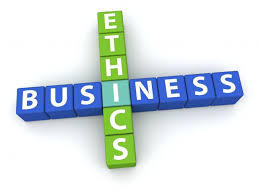Creating an Ethical Culture and “Outside” Influences
Forgive me for taking a  step back to address an important challenge in creating a culture of compliance. I know this may sound obvious but in today’s “toxic” political environment it is important to point out some factors that may be beyond the influence of a corporate culture, its leadership and its compliance team.
step back to address an important challenge in creating a culture of compliance. I know this may sound obvious but in today’s “toxic” political environment it is important to point out some factors that may be beyond the influence of a corporate culture, its leadership and its compliance team.
I have consistently ignored commenting on political issues and will continue to do so because that is not the purpose nor relevant to this forum. Nonetheless, compliance professionals should recognize that corporate culture does not occur in a vacuum but reflects or responds to social norms, values and expectations.
I have seen a number of articles that point to the influence that a changing workforce and the increase of millenials in corporations will have on compliance and messaging. I understand the need to focus on these issues – each generation reflects the environment from which it “grew up” and the values that were expressed in society and in our political world.
A compliance program dedicated to establishing and promoting a culture of compliance has to understand that specific trends and concerns can have a real impact on corporate culture. For example, it does not take a rocket scientist to figure out that with the financial demise of 2008 to 2010, managers and employees carried with them significant financial and personal worries in the workplace.
On a broader scale, compliance professionals face a set of challenges when society promotes individual achievement, wealth and earnings to the detriment of those who are less fortunate. Compassion is a social value that goes up and down with time depending on the confidence and anxiety of the middle and upper economic classes.
Our history is replete with instances when focus on the self outweighed any consideration on the wellbeing of a group or a class of persons. You can always tell how well a society is doing by its care and attention to the less fortunate –I have always agreed with that statement.
Whatever prevailing wind may be blowing in society as a whole, compliance officers have to accept that such a wind will blow to a smaller degree in the corporate culture. The question is can you address it and mitigate a negative influence on your culture.
Perhaps it is naïve of me to believe in the fact that everyone wants to be part of a culture dedicate to integrity and trust. No matter what, we all have a desire to believe in a greater good, and most managers and employees want to believe in the greater good of their employer. We all strive for meaning and managers and employees want to believe in their institution – the company.
 Even when society as a whole may be more “toxic” or we have political trends that confirm we have strong negative influences, compliance officers can attend to their company’s culture and appeal to the greater good in everyone. I am not so negative to believe that such efforts are wasted or futile. To the contrary, a company can bring together its culture by offering a positive message when the trends outside in society are less than perfect.
Even when society as a whole may be more “toxic” or we have political trends that confirm we have strong negative influences, compliance officers can attend to their company’s culture and appeal to the greater good in everyone. I am not so negative to believe that such efforts are wasted or futile. To the contrary, a company can bring together its culture by offering a positive message when the trends outside in society are less than perfect.
My only point – and maybe it is a little repetitive and I apologize for that – is that outside influences have to be taken into account but focus on the internal positive culture can still be successful and help to create long-term corporate growth and sustainability.















